|
UPCOMING EVENTS
|
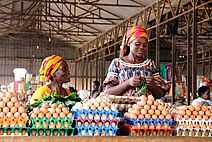 © shutterstock.com/Sarine Arslanian | Potsdam Spring Dialogues 2023 27-28 April 2023, Potsdam
The Potsdam Spring Dialogues 2023 are starting in seven days! With international experts, we will discuss possible approaches to tackle food insecurity in Africa in times of global crises.
Please download the updated programme and register here. |
 |
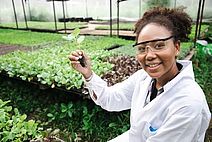 © shutterstock.com/Manop Boonpeng | Brandenburg Dialogue “Learning with Africa” 26 April 2023, Potsdam
Global crises have brought the supply of affordable food to the forefront in recent years, also increasingly in Europe and Germany. In many regions in Africa, the current challenges have led to the most severe food crisis in recent decades. In this Brandenburg Dialogue, we will explore the question of which creative approaches have emerged in Brandenburg and in Africa as a response to the crises and where we can learn from each other, despite different conditions.
The event is aimed at an interested public. You can register here. |
 |
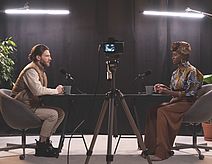 © Pexels/Cottonbro-Studio | sef: session at the Deutsche Welle Global Media Forum 20 June 2023, Bonn
News reporting in any given country tends to focus on the host country and its neighbours. Other world regions are often under- or misrepresented in mainstream programmes. This leads to a situation where distorted images of the respective “other” are prevalent in all world regions. In a time of increasing geopolitical tensions, this contributes to a dramatic loss of trust.
How can quality journalism contribute to (re)building trust between world regions? This will be the topic of this year’s sef: session at the Deutsche Welle Global Media Forum, which takes place on 19 and 20 June 2023 under the title „Overcoming divisons“ at the World Conference Center Bonn. You can register for the Global Media Forum here. |
|
PUBLICATIONS
|
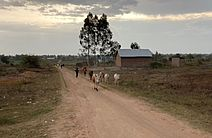 © Arne Rieber |
AVE Study 31b
For nearly ten years, Uganda has pursued a strategy of increasingly formalising and protecting land rights. How does this affect access to financial services? In AVE Study 31b, Arne Rieber and Moses Okech examine economic and poverty-reducing potentials and argue for accompanying regulation to mitigate risks for vulnerable populations.
The publication is part of the INEF project “Pathways out of Poverty, Vulnerability and Food Insecurity“ (AVE), which is funded by the German Federal Ministry for Economic Cooperation and Development (BMZ). |
 |
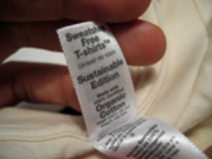 © Scoobyfoo |
New Article in Global Cooperation Research - A Quarterly Magazine
In a new issue of Global Cooperation Research - A Quarterly Magazine, Christian Scheper discusses the repercussions of the increasing collaboration of companies with other actors along transnational supply chains to solve environmental and social problems. The text argues that the pitfalls inherent in this cooperation have received little attention to date. It advocates a better assessment of the negative social impacts of transnational supply chain solutions concerning persistent forms of environmental degradation and over-exploitation of human labour. |
|
RESULTS AND REPORTS
|
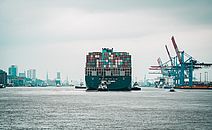 © UNSPLASH/Mika Baumeister | Dresden Forum for International Politics 2023 Conference report
The war in Ukraine and the Corona pandemic have once again made us aware of the vulnerability of international supply chains. On 2 February 2023, international experts from science, politics and business discussed possible solutions in Dresden. Read the detailed conference report on our website now! |
|
SEF:/INEF INSIDE
|
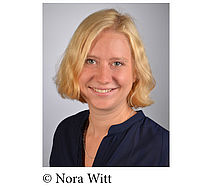 |
Nora Witt joined the sef: team as a Research Coordinator in April 2023. She has work experience at Akkon University of Applied Sciences and the Institute of Research in International Assistance (IRIA) in Berlin where she worked as a researcher and teaching assistant. She has an interdisciplinary background in African Geographic Development Studies (B.A.) from the University of Bayreuth and a Master's degree in Political Science (M.A.) from Friedrich Schiller University Jena. |
|
|
|
|
|
The Development and Peace Foundation (sef:) was founded in 1986 on the initiative of Willy Brandt. It is a cross-party and non-profitmaking
organisation. sef: provides an international high-level forum for shared thinking on the complex challenges of globalisation. It is linked to the
Institute for Development and Peace (INEF) by a cooperation agreement. The aim of INEF’s application-oriented research is to build bridges
between theory and practice. It is one of three host institutions of the Käte Hamburger Kolleg / Centre for Global Cooperation Research.
|









